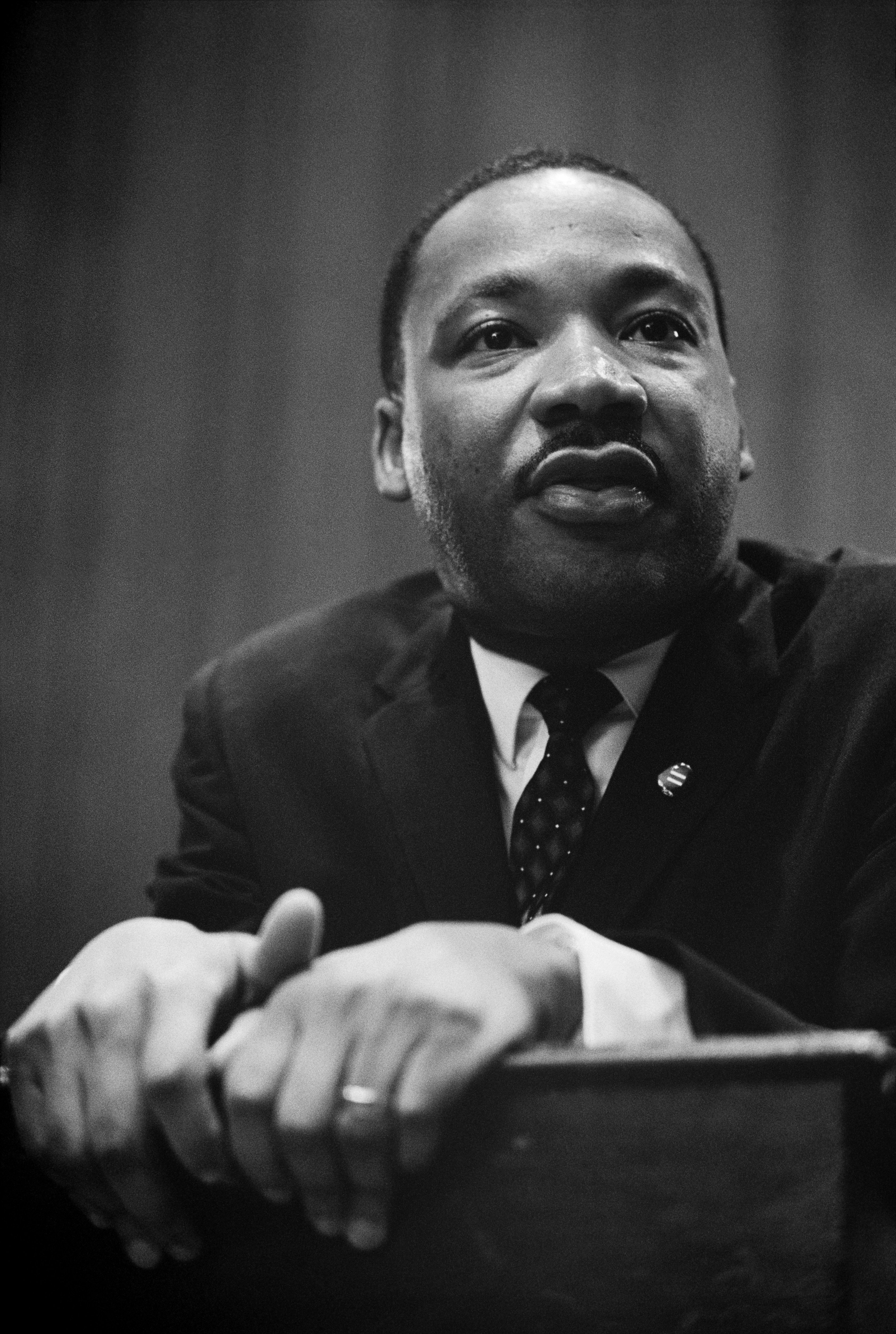Celebrating the Life of Martin Luther King Jr.
02/28/2010 15:01

With Black History Month around the corner and Martin Luther King Jr. Day behind us, we thought it would be good to commemorate one of our greatest heroes in the civil rights movement. Martin Luther King Jr. was born in Atlanta, Georgia, on January 15th, 1929. Raised by Baptist Minister Michael King Sr., King Jr. was highly influenced by his fathers firm beliefs in equality and his bold way of speaking out against segregation. King Jr. was raised in a very loving family, even saying "It is quite easy for me to think of a God of love mainly because I grew up in a family where love was central and where lovely relationships were ever present."
In 1948, King Jr. graduated from Morehouse College with a B.A. degree in Sociology. That fall, he enrolled in Crozer Theological Seminary in Chester, Pennsylvania. While attending Crozer, he also studied at the University of Pennsylvania. He was elected president of the senior class and delivered the valedictory address; he won the Pearl Plafker Award for the most outstanding student; and he received the J. Lewis Crozer fellowship for graduate study at a university of his choice. He was awarded a Bachelor of Divinity degree from Crozer in 1951. After King married he returned South to become pastor of the Dexter Avenue Baptist Church in Montgomery, Ala. Here, he made his first mark on the civil-rights movement, by mobilizing the black community during a 382-day boycott of the city's bus lines. King overcame arrest and other violent harassment, including the bombing of his home. Ultimately, the U.S. Supreme Court declared bus segregation unconstitutional.
A national hero and a civil-rights figure of growing importance, King summoned together a number of black leaders in 1957 and laid the groundwork for the organization now known as the C (SCLC). King was elected its president, and he soon began helping other communities organize their own protests against discrimination. Dr. King's 1963 Letter from Birmingham Jail inspired a growing national civil rights movement. In Birmingham, the goal was to completely end the system of segregation in every aspect of public life (stores, no separate bathrooms and drinking fountains, etc.) and in job discrimination. Also in 1963, King led a massive march on Washington DC where he delivered his now famous, I Have A Dream speech. King's tactics of active nonviolence (sit-ins, protest marches) had put civil-rights squarely on the national agenda.
On April 4, 1968, King was shot by James Earl Ray while standing on the balcony of the Lorraine Motel in Memphis, Tennessee. He was only 39 at the time of his death. Dr. King was turning his attention to a nationwide campaign to help the poor at the time of his assassination. He had never wavered in his insistence that nonviolence must remain the central tactic of the civil-rights movement, nor in his faith that everyone in America would some day attain equal justice. "All labor that uplifts humanity has dignity and importance and should be undertaken with painstaking excellence." "An individual has not started living until he can rise above the narrow confines of his individualistic concerns to the broader concerns of all humanity." "Change does not roll in on the wheels of inevitability, but comes through continuous struggle. And so we must straighten our backs and work for our freedom. A man can't ride you unless your back is bent."
Find out more ways to celebrate Black History Month on the Africa Imports web site by Clicking Here.
 USD
USD  GBP
GBP  CAD
CAD  AUD
AUD 